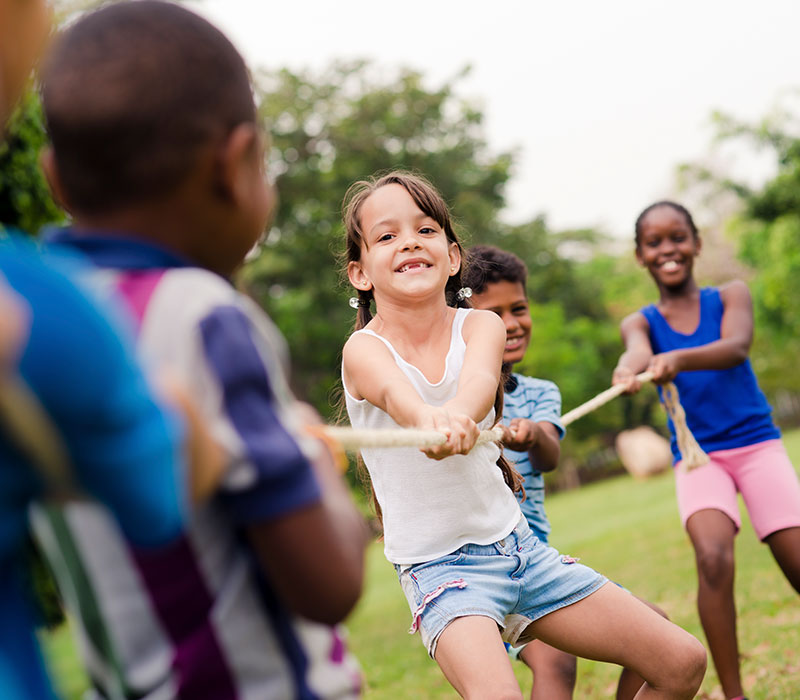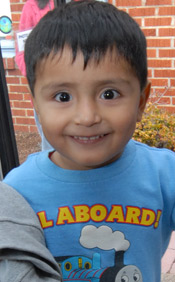Setting the Stage for Success
Getting your child off to a good start takes time, effort, and planning. The Head Start of Lane County program believes that everyone has individual worth. It is further believed that the quality of one’s life can be improved if opportunities for growth and development are met with a positive, well defined base.
Make Learning Fun
Patience, Patience, Patience
Children learn by doing. Give them opportunities to “learn” new things. Plant a garden, go for a walk to find new things in familiar surroundings, let the children use their senses.

Give your child some space. Let them practice what they are learning.
Your child’s confidence will increase as he or she learns new things. Self-esteem will help your child do better in school. Help a child feel good about his/herself by looking for the positive in your child and telling them about it. Set them up for success by encouraging self-help and personal hygiene skills.
See your child by his/her own merit, rather than comparing to other children.
Listen to your child. Pay attention to what they say. Communication is a two way street…. guaranteed to make a lasting difference in the relationship you have with your child.

Positive Parenting
Positive parenting is very important in a child’s life. In your child’s early years, there is a lot of growth and development. Your child is moving around more and meeting new people. The following tips will help you keep your child safe and learning new things in their environment.
-
- Keep reading to your child daily.
-
- Ask him/her to find objects for you or name body parts and objects.
-
- Play matching games with your child.
-
- Encourage your child to explore and try new things.
-
- Help to develop your child’s language by talking with him/her.
-
- Encourage your child’s curiosity and ability to recognize common objects by taking field trips together to the park or a bus ride.
Basic Skills For Children
How to pay attention | Before speaking, make sure he or she is looking at you, and get down to eye level with your child.
Language skills | Introduce your child to new words and read to your child.
The ability to carry on a conversation with other children and adults | Talk to your child and let your child talk to you. It is equally important for a child to be able to talk to adults as children. Improve a child’s listening skills by making him/her listen. If you are constantly repeating yourself, your child gets out of the habit of listening
Knowledge of time | Give your child a task to complete and a time limit. Use a timer. Talk in terms of time with your child.
Getting along well with children of his or her own age | Give children the opportunity to play with others their own age. Children learn how to act by watching you.
Understand and use numbers | Count – Count – Count- Read signs, speed limits, prices, clocks, etc.
Basic concepts
Parents always like to have lists of what to work on with their child. Here are a few basic concepts for children to learn. You know how your child learns and to what degree they are ready to learn something. You are the primary teacher of your child, so it stands to reason you are the best person to help your child learn the following concepts:
“top, around, most, different, alike, zero, third, over, behind, beginning, through, right, farthest, equal, corner, as many, always, pair, nearest, half, away from, separated., inside, between, below, after, above, least, midwest, row, next to, other, forward, in order, several, side, skip, few, second, center, middle, not first or last, medium-sizes, matches, left, some, not many, whole, almost, never, every“
When helping your child learn to print his/her name remember to use a capital letter at the start of a name and small or lower case letters for the rest. The habit of writing a name in all capital letters can be a hard one to break.
Tips for Managing Mornings
Mornings can be hectic when you have a scheduled bus pick up, leave for work and school, etc. Children will seek attention if they feel ignored or rushed. Take time to say “good morning” and give a smile and a hug.
Start the day off positive
Smile. Slow down. Rushing adds tension. Sing, hum or put on relaxing music.
Use simple strategies
Give your child a choice between 2 outfits. After an outfit is chosen, let your child get dressed to a timer. Use it to teach time and counting skills.
Make breakfast fun and simple
Serve a breakfast with some protein, ex. banana slices with yogurt. Protein helps kids learn better. Eating with your child can make things easier.
Set Realistic Goals
You cannot expect children to get ready in 10 minutes. Plan for the unexpected and breathe.


School-Day Tips
Start Your School Day Right
 Make a positive start | Send your child to school with a smile, a hug, and an encouraging word every single day.
Make a positive start | Send your child to school with a smile, a hug, and an encouraging word every single day.
Have your child be well rested | Ten to twelve hours of sleep is recommended for children going to kindergarten and first grade.
Feed your child nutritious meals | Meals should be well-balanced and unhurried. Insist on wholesome, nutritious foods; avoid junk foods.
Prepare for the weather | Dress your child in simple, safe, sturdy, not too tight, clean clothes. Have a change of clothes available if possible. Listening to the weather forecast will assure choosing the appropriate outdoor clothing. Label those hats, coats, and mittens. There are often several of the same color and style. Labeling saves time, effort and misunderstanding among parents.
If your child is sick, keep your child home | Look for sore throats, colds, nausea, diarrhea, chills, fever, rashes, inflamed eye, discharge from the ear, enlarged glands, earache, flushed face, and paleness. Call the school if your child is going to be absent. It is a gesture of courtesy and a nice contact with your child’s school. Let the school know where you can be reached if your child gets sick at school – especially if it is a different number than the school already has.
Sending anything to school with your child? | Label it clearly. Lunchboxes, book bags, blankets, show and tell materials, etc., should all be labeled. Sending money for lunches or other activities? Put it in an envelope with your child’s name on the outside. Put the envelope in a safe pocket.
Parents as Partners
Stay active and involved in your child’s school life | Attend school meetings. Go to parent-teacher conferences. When you meet the teacher, tell him/her something positive about your child and the teacher. You are giving the teacher a clue to your child’s personality and are making a favorable contact with the teacher.
Read all materials that come home from school | Often changes in routine, field trips, notes on your child’s progress and health alerts are listed in school notes. Keep informed – Keep in touch.
Read to your child at least for a few minutes each day | Make reading a part of your home life.
Download the REMIND App to stay connected with your teacher and get the latest information sent to your phone, email or both!

Safety First
Before you send your child off on that first day of school, it is important that your child knows and can tell or find (in her lunchbox, coat pocket, or book bag) their first and last name, street address, parents’ names and phone numbers.
Walk along the route to and from the school or bus stop. Help your child understand traffic lights and cross walks. Explain that driveways can be dangerous and to be alert for backing cars.
Look for “safe” houses or block homes between the school and home. Explain to your child what “safe” houses are.
Be sure your child knows neighbors’ or family members’ phone numbers so they can call if for some reason they get home from school early. Leave a note or message so your child will know where you can be reached. It’s very scary for children not to know where you are when their schedule is already changed.
First-Day Worries
Your child has heard from big brothers and sisters, friends and neighbors about school…and now it’s their turn. School, while it is exciting, offers some challenges as well. For example:
-
- It’s their first separation from home and family, so there may be separation anxiety.
-
- Their opportunity to try their own wings.
-
- New feelings. New friends. New experiences.
